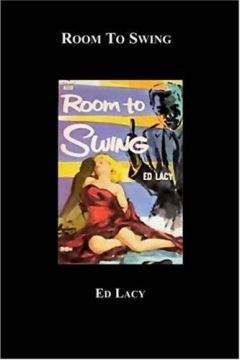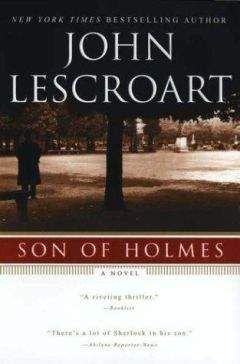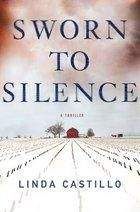Ed Lacy - Room To Swing
На электронном книжном портале my-library.info можно читать бесплатно книги онлайн без регистрации, в том числе Ed Lacy - Room To Swing. Жанр: Прочее издательство неизвестно, год 2004. В онлайн доступе вы получите полную версию книги с кратким содержанием для ознакомления, сможете читать аннотацию к книге (предисловие), увидеть рецензии тех, кто произведение уже прочитал и их экспертное мнение о прочитанном.
Кроме того, в библиотеке онлайн my-library.info вы найдете много новинок, которые заслуживают вашего внимания.

Ed Lacy - Room To Swing краткое содержание
Room To Swing читать онлайн бесплатно
“No. It isn't that we're unfriendly. We're just not friendly any longer. There's a difference.”
“Did she leave town a few days ago?”
“No. She's never been out of Bingston, except to go shopping in Cincinnati.”
“But since you don't see her, she could have left—?”
“I know she didn't. I thought you wanted to ask about Bob Thomas?”
“I am. Do you know anybody here who might have reason to hate him?”
“Not enough to kill him. After all, he hasn't been around in years. He was forgotten more than hated.”
“What was your reaction when you read about his being killed?”
“Me? I don't know. I suppose most of all I felt sorry. We used to live in a shack at the end of town, place called the Hills. Bob lived there with his mother—I never saw or knew his father—and some other poor families. It's a garbage dump now, was then too, but unofficially. The junk heap gives it the name Hills. There was about seven or eight families lived there, white and coloured.” He looked across me at Frances. “Fran, you talk to Mrs. Simpson recently?”
“Not for a week or so.”
He toyed with his hair again. “Damn health hazard for her. Mrs. Simpson still lives out there. We've been trying to have her move.... But you want to know about Bob. He is—was—two years older than May, five years older than me. But we three hung out together, hunting rats with slingshots, building shacks... all that kid stuff. Sometimes when his Ma didn't show up for a few days, he'd eat at our place. My mother died when I was a baby and my father was a drunk. I guess he tried to raise May and me the best he could, only it was too much for him, and he kept losing himself in a bottle. What I'm trying to say is—we were a wild bunch of kids, hungry and ragged all the time. When I was nine an uncle came to live with us. He worked as a mechanic, taught me most of what I know about cars. More important, we started eating regularly—until he left a few years later. He liked to move about and—I'm giving you this in detail only because Fran said you wanted a complete picture.”
“That's exactly what I need,” I said, wondering if lover boy Willie called her Fran.
Tim studied me for a second, as if about to ask why, but he didn't. He said, “Bob used to eat with us a lot. His Ma was staying away more and more. She was a waitress in a dive over in Cincy. It was the end of the depression then and she had a hard time keeping herself fed. May was growing up a real beauty. She was fifteen when our uncle took off and—Mr. Jones, this is damn hard for me to say; I have to make it short. Pop died of exposure that winter and we kids raided farmers' fields, lived like animals. When May began bringing home money I was too young to even suspicion how she got it. Bob was crazy about her and by then they were—well—going steady, I guess you'd call it. Guess you know he did time at reform school after his Ma disappeared and—”
“What happened to his mother?”
“Later we learned she'd been killed in a car wreck over in West Virginia. We stopped a lot of the wild kid stuff. I even started going to school more and when Bob came back from the reform school, he always had a few bucks on him, and told me he was working for a dairy farmer. Of course May was giving him the money. And I knew what she was doing by then, I had to know. I tried to stop her. I left school and got a job, but how much can a kid make? Bob, he wanted her to stop, too, but he never held down a job for long. And what could he make? You understand, May wasn't any silly oversexed kid out for thrills. Way she saw it she was—well—she was selling her body, but then what does a factory girl do but sell her arms and legs?”
He paused, perhaps waiting for an answer. I said, “Guess that's one way of looking at it.”
“I don't know,” Tim said, as if thinking it over. He shook himself slightly. “In '50, when she was nearly nineteen, May found herself pregnant. She wanted Bob to marry her. He was willing but insisted she give up—what she was doing. She couldn't see that. Whenever Bob worked, he only picked up dimes at odd jobs and May had enough of poverty. He refused to marry her. May was getting big and upset about the kid not having a 'name.' Other people were getting worried too. May's 'work' was still pretty much of a secret, even in a small town like Bingston; only a few men were supporting her. Things came to a head when Bob was due to be drafted. She had to do something about her pregnancy—she had him arrested for rape. It was a lousy thing to do but she only did it because she thought it would scare him into marrying her. Needless to say the so-called respectable citizens who were keeping her liked the idea. It was an out for them. You probably know the rest—Bob was released on low bail, to give him a chance to marry May. He beat her so badly she lost the kid, and nearly died. Nobody has seen him here since.”
I took out my pipe, lit it. “Did you ever see Thomas again, look for him?”
He shook his head. “If I'd found him that day I would have killed him. I was carrying a hunk of pipe in my pocket to beat his brains out. But I didn't have time to do much looking, I was busy taking care of May. A year later, when I was in the army, I'd try to find him—in whatever town I came to—but I never saw him.”
“What would you have done if you had found him?”
He patted his hair nervously. “I don't know. By then, even though I was sending her an allotment, May was working openly—at her—trade. I think by then I realized it wasn't his fault. He'd been as trapped by circumstances as May. Although he shouldn't have whipped her. I've never forgiven him that.”
“Maybe, in his own way, he loved May so much he lost his head,” Frances suddenly said.
“Maybe. But I hate violence—for any reason,” Tim said. He took out a pack of butts, asked Frances if she wanted one. She said no and he puffed deeply on his, almost savagely.
We were all silent for a moment, then Tim asked, “Have you got a picture of Bob Thomas now, Mr. Jones?”
“Yeah, a pretty good one.”
“Odd what you remember about people. Bob always realized his lack of education. When my uncle was living with us, all Bob could do was talk about learning a trade, being a somebody. But then, when he had a little money, I mean May would have put him through a trade school, he never bothered with it.”
“In a world of nobodies we all want to be a somebody,” I said, almost to myself, thinking Porky Thomas had the desire for a trade till he died.
“What did you say?” Frances asked.
“Just a would-be clever crack from a would-be clever character I know in—eh—Chicago.” I turned back to Tim. “Did Thomas have any other brothers or sisters?”
“Nope.”
“Was there ever an English teacher employed in the Bingston school named Barbara? Sort of a washed-out-looking woman, probably be between thirty-five and forty now?”
“I never heard of any teacher like that. Matter of fact, Mr. Kraus has been teaching English for as long as I can recall.”
“Thomas ran off about six years ago. In all those years hasn't anybody in Bingston seen or heard of him?”
“No. I think they would have told the police, if they had. Not only was there a lot of feeling about the beating he gave May, but most people still think he was the one that got her into trouble.”
“But these other admirers of May, suppose they'd come upon Thomas, perhaps tried to take him in and—”
“I don't know a one of them who has left town in years. They all have families here. I think this is about all I can tell you.”
“Okay. Would it do any good to see your sister?”
“She'd scream for the police. Her measure of respectability now is being anti-Negro.”
“I see. One more question. When the TV people were here, interviewing and taking pictures, didn't that start a lot of talk and renewed interest in Thomas?”
“Damn right there was plenty of talk,” he said bitterly. “There still is—everybody waiting to see themselves on the screen. And they were happy to be paid for the interviews —Judas money.”
“After you got out of the army, why did you return here?”
He looked surprised. “Why not? It's my town. One of these days May will fall—she's still my sister; I want to be around to pick her up.”
I couldn't think of anything else to ask—and he hadn't added much to what I already knew. He started his truck, said, “I hope I've been of some use—for whatever you wanted, Mr. Jones. I'm past due at work.” We shook hands and he drove off. At the edge of the clump of trees, where the ground wasn't muddy, he stopped his truck and called Frances. She drove the Chevvy up, got out and they whispered for a moment, then Tim Russell drove on.
As Frances got back in the Chevvy, she said before I could ask, “He wanted to know if you were a cop. I said you weren't.”
She waited until his truck was out of sight down the road before starting the Chevvy—I knew they'd met like this before. I asked, “Has Tim got any other brothers, any other relatives in Bingston, or anyplace else?”
“No. Except for his uncle—I vaguely remember him, a stooped old man. I don't think Tim has seen him since he was a kid.”
“Can you see Tim again, find out if he knows where the uncle is now, his name?”
“I'll ask him. Do you think the uncle might have done it?”
“Honey, I don't think anything. I'm like the bear—nowhere. Tell me, do you see Tim around, I mean every day?”
“Yes. I told you, he owns a small garage.”
“Are you sure he was in Bingston three days ago?”
She looked away from the road to stare at me with solemn eyes for a second. “He's not the killer, Touie. And I know he was here. He comes into the bakeshop every afternoon on his way home to buy bread and cake, so— I'm due at the shop right this minute. What are you going to do now?”
“I don't know.” I didn't have idea one about where to turn. I was standing still while time was rushing by me, running out.
“If you want, I can call in sick, help you.”
“Thanks, but I'd better drop you off, then I'll go back to the house, try to think. Does Tim see May now?”
“Very rarely. When he came out of the army he wanted her to give up her—business, move away and start life over again with him. He'd saved up a thousand dollars and he figured he could buy a little garage anyplace. May laughed at him. She offered to set him up in a gas station that cost ten thousand. That was the lick with them.”
She stopped in front of a small frame building with an apartment over a bakeshop with a large window, everything painted white, looking very clean. When Frances got out, I shoved over behind the wheel, feeling her warmth still on the seat. She asked, “Will I see you at supper?”
“Yeah. Look, when you speak to Tim, also ask about Thomas' father. I gather he was a no-good, but find out if Tim has any idea who the father was, where he lived, and if he thinks Thomas ever knew him.”
“I'll ask, but I'm sure Porky never knew his father. Anything else?”
“Yes—thanks for giving me your lunch hour.”
She smiled as she waved, and I watched her walk into the store. I drove to the Davis home, turned into the driveway and parked. The old lady came to the window, pulled back the lace curtains and nodded at me. I tipped my hat at her, then took out the TV data on Thomas, went over it again. Bingston was adding up to a large zero. As a real detective I was another bust. I kept staring at the papers the way I'd seen detectives do in the movies. I didn't have a smell of a hint, much less a clue. God, how I wished this were all a movie!
Still, unless it was one of these sudden dumb killings, there's always a hell of a good reason for murder, and that reason had to be someplace on this list. Thomas was on the loose for half a dozen years but was killed when the TV people got interested in his case, so... So what? For all I knew Thomas could have had something going for him in New York. Could have had a fight with his girl friend and she conked him? Only how could she have known about Kay, about me? But Ollie said a girl had phoned—could it have been her? Only she didn't look like a killer—as if I knew what a murderer looked like, as if anybody does. Suppose Thomas took her up to his room, made a pass, and she grabbed the pliers? But that didn't explain how she could know about me and Kay. I kept coming back to Kay. For all I knew the whole TV thing could be a lie... she'd paid me in cash, I didn't even know for sure that she actually worked for Central, or any TV studio. No, no, there was a TV program, they'd interviewed people here.
I kept trying to think things out and only came up with a headache and one sad fact that was for true—as a detective I was a pitiful amateur. And as the old saying goes, I sure had a damn fool for a client. I'd been crazy to think I ...
Mrs. Davis opened the front door. “Want your lunch, Mr. Jones?”
I nodded and climbed out of the car, brushed my coat with my hands. The old lady said, “I suppose Frances took you to a garage to see about fixing your car?”
“Yeah. They're sending to Cincinnati for parts,” I said, following old nosey to the kitchen.
“I have some nice hash I've just made, or you can have a slice of ham, fresh rice pudding, coffee or tea. Do you want a towel? You can wash up at the kitchen sink.”
The old lady spooked me; all this small talk about lunch as if this was just another afternoon, as if I wasn't wanted for murder. I had nothing on my mind but to decide between hash and ham! But what could I do, where else could I look? Somehow I had expected this Tim would give me a lead. I always read that when a cop was stuck he started digging into the case again. But everything was so open in this, where could I dig? Where...?
“If you like, you can have a hash and some ham, Mr. Jones.”
“I'll... eh... just a glass of milk, Mrs. Davis.
“Oh come on, a man as big as you needs more than milk to carry him. Still two dollars a day for meals, so you might as—”
“I'm full of breakfast. A glass of milk, if you have it.”
“As you wish.”
The only thing left was to see some of the people who had been interviewed. Start with people who knew Thomas as a child. What was the name of the old gal Tim said still lived on the garbage dump? I reached for the data sheets in my pocket, remembered Mrs. Davis was around. Sipping the cool milk I said, “Noticed an old shack out by the garbage dump. Anybody living there?”
Похожие книги на "Room To Swing", Ed Lacy
Ed Lacy читать все книги автора по порядку
Ed Lacy - все книги автора в одном месте читать по порядку полные версии на сайте онлайн библиотеки My-Library.Info.




